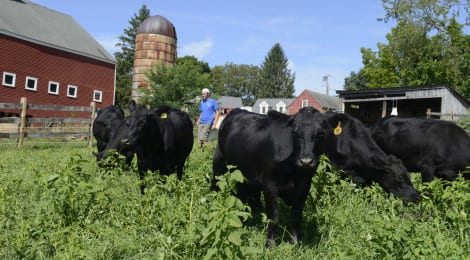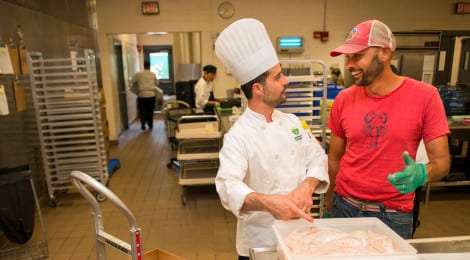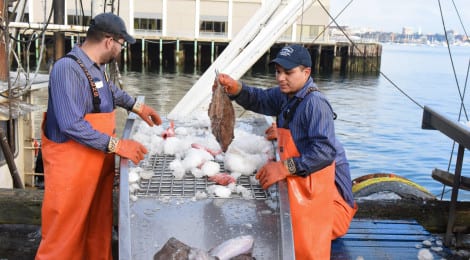
Food Vision Prize Profile
Whole Animals for the Whole Region
The goal of the Whole Animals for the Whole Region project is to increase direct purchase of beef and pork from farmers in New England by establishing the infrastructure and systems needed to purchase whole animals as opposed to individualized cuts, which can cost a farmer valuable processing time and storage space. By processing and storing in large volumes, the slaughter and processing of ingredients can occur during slower periods for small businesses allowing them to maximize their capacity.
The project was born out of a collaboration at The Hotchkiss School, an independent residential high school in northwest Connecticut. The school partnered with nearby Whippoorwill Farm to raise its own livestock. Starting with three steers and six pigs, Whippoorwill Farm worked with Adams Farm, an abattoir in Athol, MA, to meet institutional requirements. Adams in turn enlisted Noack’s Meats in Meriden, CT, for specialty curing and smoking. On-farm livestock production at Hotchkiss grew and more animals and farmers were brought in to meet the need. Today, under Mike Webster’s leadership, Hotchkiss is using 100% whole animals – 85% of which are local. Much of the processing is done in-house at Hotchkiss including that of stock, bacon and ham.
Fascinated by the ripple effect of bringing new demand into the supply chain, Smith College, Westfield State University, and Mount Holyoke College are joining forces to implement this process on a larger scale. By collaborating with three larger schools, these partners aim to have a larger impact and engage even more food system stakeholders. The project will support farmers in the region to adjust their production and delivery to meet institutional demand and enable the institutions involved to process and store large volumes of beef and pork in a way not possible today.


